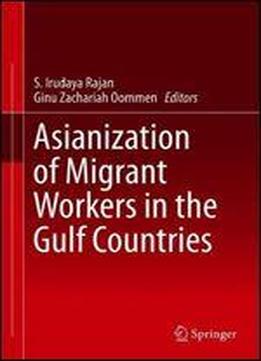
Asianization Of Migrant Workers In The Gulf Countries
by S. Irudaya Rajan /
2020 / English / PDF
3.9 MB Download
This edited volume contains sixteen chapters by eminent scholars on one of the largest migration corridors in the world i.e., between South and South-East Asia and the Gulf region. Asias trade and cultural contact with the Gulf date back to ancient historical times. Since the 1970s, the economic rise of the Gulf Cooperation Council (GCC) countries owing to the discovery of oil has inspired a huge influx of migrant workers from Asia. At present, out of roughly 15 million expatriates in the Gulf region, Asians constitute around 12 million (80 percent). The chapters in this book look at migration from countries like India, Sri Lanka, Bangladesh, Pakistan, Indonesia and Philippines to the different GCC countries. A few chapters also focus on migration from the India state of Kerala- a state where migration to the Gulf is prominent and where remittances make up over 36 percent of the state GDP. Furthermore, the issues covered range from labour practices and policies, citizenship and state protection, human rights, gender and caste as well as diaspora. This book explores the multifaceted nuances of the Asia-Gulf migratory corridor and unearths future prospects and strategic implications. The book examines remittance behaviour, changing gender roles of immigrants, social-spatial mobility, migrant policies, human rights, sense of belonging and identity and perception, and the interaction between nationals and non-nationals. The book will be of interest to researchers in the areas of demography, migration and gender studies as well as social science researchers, policy makers, human rights lawyers, civil society institutions working on migration, Gulf studies programmes and centres on South-Asian and Middle-Eastern studies.











